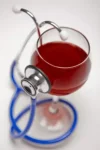
Setting boundaries becomes paramount to protect yourself from further manipulation and prioritize self-care. Seeking support from trusted individuals such as friends, family, or support groups can provide validation and guidance as you navigate the aftermath of narcissistic behavior. Additionally, considering therapy or counseling can offer valuable insights to heal and develop healthy coping mechanisms.
What Sets Covert Narcissists Apart from Overt Narcissists?
- But other types of manipulation can be harder to spot, especially when it’s covert and you’re the one engaging in it.
- These people might seem self-centered or so focused on their own importance that they’ve lost touch with reality.
- Many people have fallen victim to the manipulative behaviors of a covert narcissist without realizing what has happened until they are already in emotional pain.
- They are always focused on staying elevated to maintain their sense of self-importance, so it is easy to understand how a covert narcissist would find it difficult to compliment you.
- I turned to Craig Malkin, a therapist and author of Rethinking Narcissism (and a Psychology Today blogger), for answers to the question of how to deal with someone who has addiction and narcissism issues.
“When someone has narcissistic personality disorder and a substance abuse problem,” he said, “it’s not enough for them to beat their drug addiction; they also have to beat their addiction to feeling special.” This in-depth study of narcissists and coke addiction yielded some important results. The narcissists mostly had unrealistic demands covert narcissism and alcoholism for the therapist, other patients and anyone else involved in the treatment programme. When their criteria of perfection failed to be met by others, the narcissists usually quit treatment, spotlighting a key challenge in narcissism and addiction. Narcissists tend to deny that they are addicted to drugs, regardless of what it looks like.
- By building support from family and friends, you are more likely to stay on course with your dual treatment plan and avoid the stress that can make AUD and NPD worse.
- For information about the terms governing the use of our website and how we handle data, please refer to our Terms of Use and Privacy Policy.
- For females, it is not advisable to consume more than one unit of alcohol per day.
- Depending on the severity of the problem, residential or inpatient treatment may be necessary.
- They also blame, shame, and ignore the feelings and needs of other people.
Dual diagnosis

“That can be really hard if it’s someone who’s really important to you, but if it becomes emotionally or physically abusive, you have to protect yourself,” she adds. Setting up healthy boundaries about what you can and can’t put up with is also important because your needs have to be met just as much as other people around you. To deal with different perceptions of what’s happening, it might be good to keep a journal of when issues or incidents arise and how they’re resolved, so you feel grounded in what you know.
What Upsets Covert Narcissist?
One of the hardest types of people to deal with is a narcissist in the middle of their addiction. The combined selfishness of narcissism and addictive behavior is overpowering, relentless, callous, and frequently abusive. This destructive blend of arrogant thinking in that they are always right and that they do not have a problem leads to devastating consequences. A 2019 study found a link between vulnerable narcissism, shame, and an increased likelihood of problem drinking and gambling. Vulnerable narcissism features traits like low self-esteem, helplessness, and rejection sensitivity.
Although they are not always sneaky, some covert narcissists can take joy in creating confusion. They may not engage in blaming or shaming, but instead, causing people to question their perceptions and second-guess themselves. The introverted, covert narcissist may have a more gentle approach to explain https://ecosoberhouse.com/article/dealing-with-peer-pressure/ why something is your fault and they are not to blame. They might even pretend to be a victim of your behavior or engage in emotional abuse to put themselves in a position to receive reassurance and praise from you. Whether overt or covert, the goal is to make the other person feel small.
The Covert Narcissist’s Abusive Behaviors

Setting and maintaining your boundaries
- The comorbid psychological distress stemming from both conditions can lead to a tumultuous environment, affecting not only the individual but also those around them.
- One of the ways covert narcissists may express this resentment is by using silent treatment.
- But addiction makes us all more narcissistic—willing to lie, steal, cheat, and even exploit others to get our high.”
- On the other hand, the term “alcoholic” describes someone who has an alcohol use disorder (AUD), which is the clinical term for an alcohol addiction.
- It can be hard to hold a connection with someone who appears to only think about themselves.
- Five outcome variables (alcohol use, problems, and problem recognition, expectancies and evaluations) were tested in steps.
- With any mental health condition, the outlook is almost invariably better if you are treated than not treated.
- They may feign vulnerability and offer insincere apologies as part of their manipulative tactics, making it challenging for others to recognize the toxicity of their behavior.
- Instead, they’re more likely to wait for an ideal opportunity to make the other person look bad or get revenge in some way.


